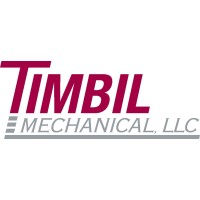
Timbil Mechanical LLC
Founded in 1989, Timbil Mechancial LLC is an established commercial mechanical contractor based in Boonton, New Jersey. With a crew of approximately 75 employees, we perform a wide range of HVAC installations throughout the five boroughs of New York City. Through our in house drafting, estimating, project management, and steam fitting, Timbil offers turnkey mechanical solutions tailored to your company's specialty needs.






